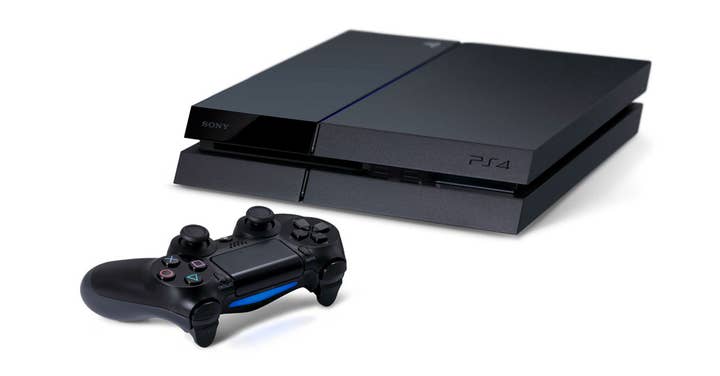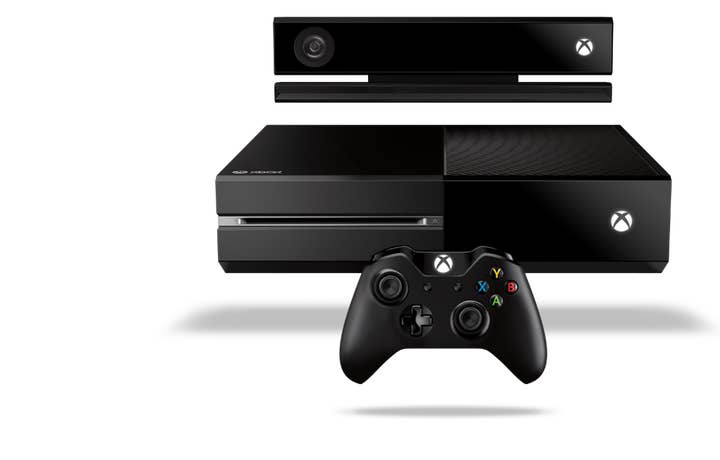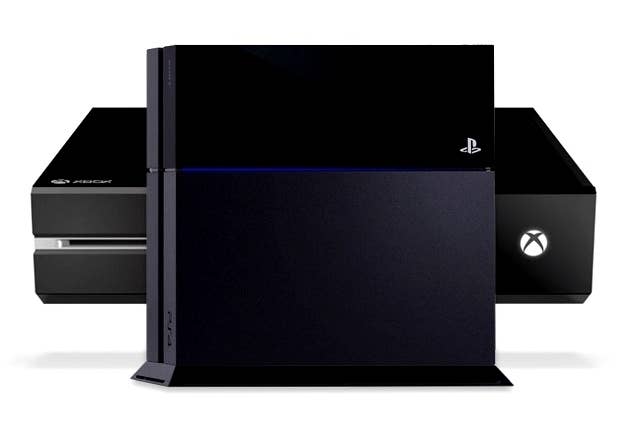Can PS4 and Xbox One save console gaming?
We speak with industry veterans about the console sales slump in recent years, if innovation has been a problem, and what next-gen will do for business
2013 hasn't painted a pretty picture for the retail sales of console games. With the exception of the big lift the industry received from GTA V's record-setting launch, generating $1 billion in just three days, console game sales have been consistently down. In fact, there have been nine straight quarters of decline in the video game business.
Over the next two weeks, both the PS4 and Xbox One will finally launch, but will new platforms really change the business? Is the slump just the result of consumers growing tired of the eight-year-old console generation? Is the industry suffering from an emphasis on sequels at the expense of innovation? Have smartphones and tablets fundamentally undermined the market for set-top box gaming?
GameStop president Tony Bartel thinks new consoles will bring about the innovations in gaming that the industry needs. Bartel recently blamed a lack of innovation for the current consoles' declines, and he's incredibly encouraged by what Xbox One and PS4 bring to the table. But veterans GamesIndustry International spoke with appeared to be split on whether new consoles will really boost sales.
"There will always be those kinds of gamers that just relish the bleeding edge technology. For them, they're right. That's enough for them to pull the trigger on...a new console. But I don't think that's enough of a customer base to really explain the lack of financial success that we're seeing in the console space right now," said God of War and Twisted Metal creator David Jaffe.
"I think they'll be impressive, cool consoles and I'm excited to play them as a gamer, but I think the days of the traditional console are on the way out"
David Jaffe
"So I don't think seeing another batch of specialized hardware is going to move the needle in any permanent way that's going to rectify what's not a technological problem. It's a business model problem and it's a creativity problem and it's a fundamental structure problem in terms of the way the industry itself is set up when it comes to decisions that are made for certain games and things like that."
The variety of platforms at gamers' fingertips now makes the decision to purchase a new console that much harder for the average person. The hardcore will always invest in a high-end PC rig or the newest, most powerful console, but that's not the case for the masses.
"I think we're going to see a huge chunk taken out of the pie for console sales [going forward]. I think they'll be impressive, cool consoles and I'm excited to play them as a gamer, but I think the days of the traditional console are on the way out," Jaffe continued. "I think a lot of the people who bought a console this generation or last generation are getting the same meal for substantially less cost on mobile, tablets or on PC with things like Steam and a lot more interesting games and price points. And there are things like Minecraft - people in the past who would have gone out and bought a console in year one are probably just fine playing stuff like Minecraft at this point."
Tony Goodman, founder of Ensemble Studios (which Microsoft shut down) and mobile studio PeopleFun, largely agrees with Jaffe. At the end of the day, there are only so many entertainment dollars to go around, especially in a difficult economy.

"New consoles will always drive a short term spike in game sales. The bigger issue for consoles is the increasing competition for entertainment dollars from other devices," he noted. "It's much like the way the TV network market changed with channel competition introduced by cable and satellite TV. ABC, CBS, and NBC were the places you went to see high quality television just like you used to go to your Xbox, PS3, or Wii for the newest and best gaming experience."
"Many niche networks sprung up that didn't spend money like the big networks but they created innovative and focused experiences for television and drew viewers away from the big networks. Some of those smaller networks have gone on to produce incredibly high quality television such as The Sopranos, Game of Thrones, Breaking Bad, etc. The disruption in television continues today as many are leaving the satellite and cable providers because they can essentially create their own narrowcasted network using Hulu, Netflix, Apple TV and other services."
"The game industry is progressing down a similar path. The vast majority of revenue in consoles comes from sequels," Goodman continued, referring to the problems we've seen with innovation in AAA. "Most of the innovation is occurring in the mobile and PC market where it's possible to produce a hit game with a smaller budget. Mobile and social games have dramatically increased the number of 'gamers' and also increased the amount of time spent playing games since they can be played almost anytime and anywhere... It will change even more in the future as gamers expect all their games to live in the cloud and they want to be able to play them on whatever screen they have handy."
But perhaps we're getting too hung up on what innovation means. There's nothing wrong with becoming obsessed with a top franchise and wanting more of the same with just some moderate improvements, commented one industry veteran of more than 20 years, who wished to remain anonymous for this story.
"I personally fall in love with some franchises and can't wait for the sequel. (Like I'm genuinely sad Microsoft stopped making Flight Simulator, even after version TEN!) So in a weird way I want games like FIFA and Battlefield to continue to get better; the innovation comes in making it feel 'new' and fresh, just like when Apple releases new iPhones. The upgrades need to be tangible, then I'm OK with that," he said.
With so many entertainment options available now, however, quality is more important than ever before. If a game is only average or slightly above average, consumers will move on in a heartbeat to something else that captivates them.
"I feel there's an abundance of things now to grab my entertainment time; the game and its messaging needs to capture us more quickly than ever before. To be clear with so much choice now, if a game isn't well made, people just move on, time is too valuable. Time really is valuable, it's why time based items (saving your time) are always the number-one selling micro-transaction," the industry veteran said. "If too many games look like everything else, then it's not surprising sales are down. You should urge developers to look at what they are making. If it's leading a category or genre then great. If it's looking like lots of other games and isn't leading any genre or category then it's time to pivot."
For Seamus Blackley, co-creator of the original Xbox and a former agent of Creative Artists Agency, it would be wrong to point fingers at the development community for any perceived lack of innovation.

"Developers are really creative. It's not like developers have suddenly become stupid. But developers are also frustrated because a lot of people have great ideas. People with great track records have great ideas. People with no track records have tremendous ideas. The guys at ThatGameCompany. They were students... I think people probably believe that developers have a lot more choice than they do in bringing new ideas to light," he said, pointing out that business becomes restricting.
"Most developers have two or three really cool things they want to make, and the question is how? If the analysts and guys running the publishing business, and any sort of game financiers, don't feel comfortable or like there's a business behind taking a bit of risk at that time, then they won't. And those ideas will stay on the shelf. So that's the situation we're in now," he lamented.
But whereas Jaffe and others are somewhat pessimistic about consoles, Blackley sees reason to hope. The new consoles will lead to new business and support new ideas, he believes, and on that front, he agrees with GameStop's Bartel. The new consoles will give the suits an excuse to try out more interesting, creative ideas that the developers are looking to push out there.
"The train track that I got held down to when I realized I wanted to see this Xbox platform happen was that I had to abandon a lot of preconceptions I had about a lot of this stuff - which was, if you want the cool, innovative stuff to happen, somebody somewhere has to put in a terrific amount of business funding in order to enable it to happen. And it's exhausting," he said. "What I discovered is that the reason there wasn't a lot of innovation way back then in the '90s wasn't what I thought. It wasn't because developers weren't creative, or people didn't have enough ideas or opportunities, or the technology didn't exist to bring those ideas to life. That stuff's all a challenge, but the fact is, to make something innovative requires cash. It requires a financial opportunity to take some risks."
Ultimately, Blackley believes that the new consoles will create that financial opportunity. It's what new consoles do best, he said.
"...in the last 10 years, development costs have probably gone up 30x... you're squeezing more and more out of less and less, and that's really challenging if you're a smaller developer"
Alex Hutchinson
"Consoles are not about the television. They're not about high performance. They're not about having a consistent controller or any of those things. Those are true, but that's not the heart of the matter. And this is where there's an underground reality that people don't think about. What they're really about is providing a stable economic base that lets you take risks on games," he explained. "So we have seen all sorts of big innovation in gameplay on consoles. And sure, we've seen a lot of derivative stuff as well because it's expensive. It's a hard business. But it has been safe within that environment to take risks."
"Sometimes those risks are taken by first parties. Sometimes they're taken by third parties. But we've seen whole new genres erupt on the console that wouldn't have happened other places where there wasn't a defined, semi-safe business model that was clearly managed in sort of a walled garden way. So you think of Guitar Hero, Gears of War, or any of the console models that are innovative and have driven a lot of the industry, those were possible because the business behind them was possible. And that business was possible because these players, the console providers, created this safe baseline business model."
New consoles in and of themselves, however, aren't going to magically solve problems with innovation and industry growth. "What we need is the next generation of business infrastructure to make [innovation] possible. And iOS isn't doing a great job at that. There needs to be new excitement injected into the console world to provide more infrastructure for that to happen," Blackley pointed out.
Something definitely needs to happen on consoles to support a business other than massive AAA titles. Perhaps Sony's indie push and the ID@Xbox program will make a difference, but so far consoles have become tough places to survive for smaller studios. It's unfortunately led to a loss of the mid-level game, said Alex Hutchinson, creative director at Ubisoft Montreal
"If you talk about big AAA or traditional console games, I think it's the loss of the middle, the loss of the solid B title. And that's a shame because there's a lot of unusual stuff there in the past. But it's because the cost of development has gone up astronomically. If you think about it, in the last 10 years, development costs have probably gone up 30x, but the cost to the consumer has remained the same. So you're squeezing more and more out of less and less, and that's really challenging if you're a smaller developer," he noted.
Maybe in the end, the concerns about the future of consoles and whether these new systems spark sales is irrelevant. After all, it's the games that matter, and those will live on any platform.
"Big hits have never sold more than they do today, and indies have never been as prominent before. Today is the boom of that," Hutchinson said. "I feel like we're focusing on a very narrow window and saying it's all...going down. Games are so wide now. It's on your phone, your handheld device, your TV, my mom's playing on Facebook. It's so big now. It's bigger than it's ever been. It's come out of the bedroom, so to speak."
While consoles can no longer hog the spotlight, the bottom line is that games and the business around them will continue to grow and evolve. As our anonymous industry veteran said, "I think we need to stop worrying about the games business, it's growing constantly, there's more people playing games now than ever before and money is made in so many ways, in so many countries that are not made public. The amount of teams the industry is funding is growing exponentially and so it's not surprising that the overall wealth of the industry is becoming more distributed. I believe there's plenty of money out there if you do something innovative."

